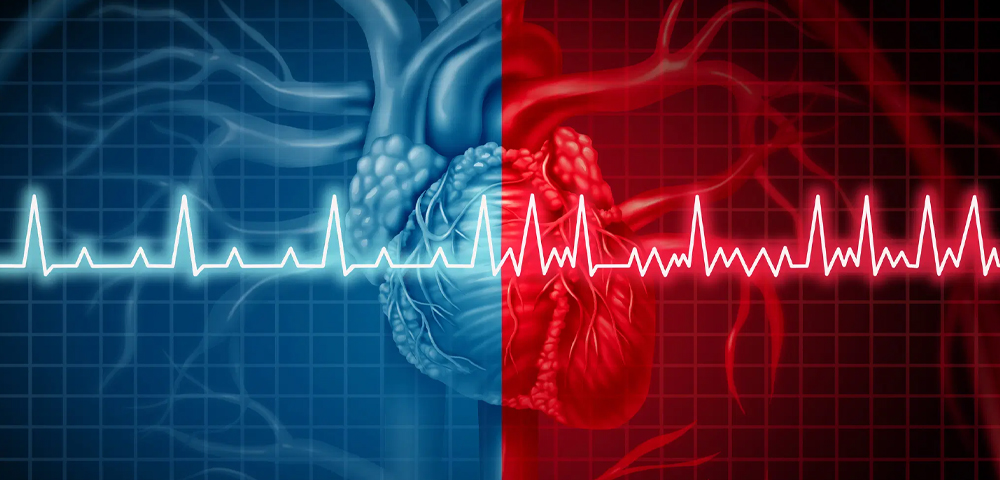
What is Heart Arrhythmia?
Heart arrhythmia refers to any abnormality in the heart’s rhythm, where the heart beats too fast, too slow, or in an irregular pattern. The heart relies on electrical impulses to maintain its regular rhythm, and any disruption in these impulses can lead to arrhythmias. This condition can range from being harmless and manageable to life-threatening.
Arrhythmias can occur due to a variety of reasons, including heart-related issues or other health conditions that affect the heart’s electrical system. If left untreated, severe arrhythmias can lead to stroke, heart failure, or sudden cardiac arrest.
For expert heart care, an experienced Cardiologist specialist in Baner, Pune, provides comprehensive treatment for arrhythmias. With access to advanced diagnostic tools and treatment options, he ensures the best care tailored to the patient’s needs.
Causes of Heart Arrhythmias
The causes of heart arrhythmias can be wide-ranging. Some of the most common include:
- Coronary artery disease: Blockages in the coronary arteries restrict the flow of oxygen-rich blood to the heart muscle, disrupting its electrical signals.
- High blood pressure: Chronic hypertension can damage the heart and its electrical pathways, leading to arrhythmias.
- Heart attack: A heart attack can cause scarring in the heart tissue, which may disrupt the electrical signals.
- Electrolyte imbalances: Low or high levels of electrolytes, like potassium or magnesium, can interfere with the heart’s normal rhythm.
- Genetic factors: Some people may inherit conditions such as arrhythmogenic right ventricular cardiomyopathy (ARVC) or long QT syndrome that predispose them to arrhythmias.
- Lifestyle factors: Excessive alcohol consumption, caffeine, stress, smoking, or lack of physical activity can contribute to arrhythmias.
Other health conditions: Thyroid disorders, sleep apnea, and certain medications may also increase the risk of arrhythmias.
Symptoms of Heart Arrhythmias
The symptoms of heart arrhythmias vary based on the type and severity of the condition. Some people may experience no symptoms at all, while others may suffer from significant discomfort. Common symptoms include:
- Palpitations: A feeling of fluttering or irregular heartbeats in the chest.
- Shortness of breath: Difficulty breathing, especially during physical activity.
- Chest pain: Tightness or discomfort in the chest.
- Dizziness or lightheadedness: Feeling faint or losing balance.
- Fainting or near-fainting: In severe cases, arrhythmias can cause a person to faint due to decreased blood flow to the brain.
If you experience any of these symptoms, it’s important to seek medical attention immediately, as some arrhythmias can lead to more serious health issues, such as stroke or heart failure.
Heart Arrhythmia Treatment by Dr. Akshay
Dr. Akshay offers comprehensive care for heart arrhythmias, focusing on a personalized treatment approach to manage and resolve the condition. The treatment methods he uses include:
- Medications: Antiarrhythmic drugs are used to control the heart’s rhythm. These medications can help prevent abnormal heart rhythms or restore a normal rhythm. Beta-blockers, calcium channel blockers, and blood thinners are also commonly prescribed to reduce the risk of stroke and improve heart function.
- Lifestyle Modifications: Dr. Akshay emphasizes the importance of lifestyle changes to reduce the risk of arrhythmias. These include adopting a heart-healthy diet, quitting smoking, limiting alcohol intake, managing stress, and engaging in regular physical activity.
- Cardioversion: In cases where medications are not effective, Dr. Akshay may recommend a procedure known as cardioversion. This involves delivering a controlled electric shock to the heart to restore normal rhythm.
- Catheter Ablation: For certain types of arrhythmias, a minimally invasive procedure called catheter ablation may be recommended. This procedure uses radiofrequency energy to target and destroy the tissue responsible for the abnormal rhythm.
- Implantable Devices: In cases of severe arrhythmias, Dr. Akshay may recommend the implantation of a pacemaker or an implantable cardioverter-defibrillator (ICD). These devices help regulate the heart’s rhythm and prevent sudden cardiac arrest.
What Dr Akshay offer for Heart Arrhythmias treatment?
Tailored Treatment Plans: Customized to each patient’s specific type of arrhythmia and overall health.
Medication: Antiarrhythmic drugs, beta-blockers, and anticoagulants to stabilize heart rhythm.
Cardioversion: For severe arrhythmias, Dr. Akshay may recommend a controlled electric shock to restore normal rhythm.
Catheter Ablation: Targeted energy used to destroy the tissue causing the arrhythmia.
Device Implantation: Pacemakers or ICDs to regulate heartbeats and prevent sudden cardiac arrest.
Ongoing Monitoring: Regular check-ups and remote monitoring to adjust treatment as needed.
Lifestyle Guidance: Dr. Akshay advises on stress management, diet, and exercise to reduce arrhythmia risk.
Why Choose a Cardiologist for Heart Arrhythmias Treatment?
Dr. Akshay Kashid, an experienced Cardiologist specialist, offers expert heart care for heart arrhythmias with a patient-centered approach to diagnosis and treatment. His extensive experience in cardiology, combined with access to the latest diagnostic technologies and treatment options, ensures patients receive the highest level of care. Some reasons why patients choose Dr. Akshay include:
- Personalized Care: Dr. Akshay takes the time to understand each patient’s condition and tailors the treatment plan to ensure the most effective outcome.
- Advanced Technology: He uses cutting-edge diagnostic tools, like ECG, Holter monitoring, and electrophysiology studies, to precisely diagnose arrhythmias and determine the best treatment options.
- Minimally Invasive Treatments: For procedures like catheter ablation, Dr. Akshay offers minimally invasive options that reduce recovery times and minimize risks.
- Comprehensive Support: Dr. Akshay provides continuous care, from diagnosis through treatment and long-term management, to ensure the best possible outcome for his patients.
FAQs
Ans: Yes, heart arrhythmias are often managed with medications, lifestyle changes, and non-surgical treatments like cardioversion or catheter ablation.
Ans: Catheter ablation is a minimally invasive procedure that targets and destroys the heart tissue responsible for arrhythmias.
Ans: Managing stress, eating a heart-healthy diet, exercising, avoiding smoking, and limiting alcohol intake can help control arrhythmias.
Ans: Seek medical attention if you experience chest pain, fainting, shortness of breath, or irregular heartbeats.
Ans: Treatments include medications, lifestyle adjustments, cardioversion, catheter ablation, and, in severe cases, pacemakers or defibrillators.
Yes, patients in Balewadi have access to advanced arrhythmia treatment under the care of Dr. Akshay Kashid. He offers comprehensive care, including ECG, Holter monitoring, and medication-based management.
Yes, patients in Balewadi have access to advanced arrhythmia treatment under the care of Dr. Akshay Kashid. He offers comprehensive care, including ECG, Holter monitoring, and medication-based management.
